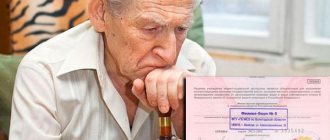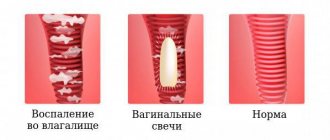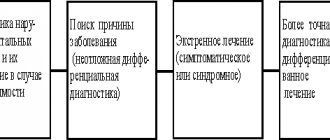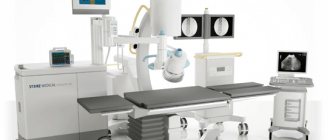Today, Alzheimer's disease is one of the most complex diseases among other diseases. A cure for this disease has not yet been found, but doctors have learned to slightly slow down the development of the disease, thereby prolonging and improving the lives of sick people.
Many people confuse Alzheimer's disease with senile dementia (dementia). But it is not so. Senile dementia is not a specific disease; this concept covers all diseases that affect memory impairment and human consciousness. In order to understand the difference between senile dementia and Alzheimer's disease, you need to study in detail the signs and symptoms of these diseases.
Signs and symptoms of Alzheimer's disease
Alzheimer's disease primarily affects a person's cognitive functions. With this disease, memory is primarily affected. In the early stages of the disease, a person cannot remember the simplest things, for example, what he did yesterday.
Short-term memory is gradually impaired; it is difficult for a person to remember phone numbers or people he has recently met. At the most severe stage, a person’s long-term memory is impaired, he stops remembering loved ones and relatives, and does not remember his name and place of residence.
Other symptoms and signs of Alzheimer's disease:
- Decreased ability to plan.
- The occurrence of loss of interest in work or increases.
- Removal from society.
- The appearance of insomnia disorders.
- Gradual loss of the ability to think.
As the disease progresses, a person begins to have difficulty speaking. Initially, he simply confuses the letters in words, then stops constructing sentences logically. At the most difficult stage, a person can no longer express basic demands; most of the communication with relatives takes place through gestures. Also, with this disease, the ability to write and read is practically lost, and coordination is significantly reduced. Patients with this problem find it difficult to care for themselves; they cannot perform basic household activities, such as cooking or cleaning.
The most severe stage of the disease is characterized by a complete loss of performance, thinking, speech and coordination. At this stage, it is difficult for a person to even eat food on his own, so the patient requires round-the-clock care. Gradually, many organs begin to fail, so the patient spends most of the time in a lying or sitting position. Because of this, he develops bedsores or develops pneumonia.
The disease itself does not lead to death; usually the patient dies from cardiac arrest, complications from pneumonia and other concomitant diseases, which become more pronounced against the background of Alzheimer's disease.
Treatment for Alzheimer's should begin as early as possible. Statistics show that if you start taking medications at age 60, a person will still live about 15–20 years. If the disease manifests itself at the age of 70-75, then the maximum lifespan of a person is 10 years.
Symptoms of dementia in Alzheimer's disease
As we age, there is a natural decline in brain function, but this should not be confused with symptoms of dementia resulting from Alzheimer's disease. The disease is accompanied by serious disorders that do not occur with normal age-related changes:
- Rapid memory loss;
- Difficulties in performing tasks consisting of several actions that previously did not cause difficulties for the patient, solving problems;
- Changes in a person’s mood, character, distance from loved ones;
- Problems in recognizing people, places, restoring the sequence of events;
- Difficulties with written and oral communication;
- Changes in visual perception; it becomes difficult for the patient to interpret what he sees (for example, photographs).
At the initial stage, dementia due to Alzheimer's disease can be almost invisible to the person himself. It is very important that the patient’s relatives detect the first signs of the disease in time and consult a doctor before the patient’s condition becomes critical.
Features of the treatment of dementia in Alzheimer's disease at the AlkoSpas clinic
Dementia due to Alzheimer's disease is a dangerous condition for the patient's health that requires proper diagnosis and individual treatment. Before prescribing a course of therapy, the doctor refers the patient to a comprehensive medical examination, which may include a neurological examination, blood tests, neuroimaging, cognitive testing to assess thinking and memory, and family medical history is also taken into account. Since in the early stages it is quite difficult to determine the external differences between senile dementia and Alzheimer's disease, this approach makes it possible to accurately diagnose the causes of deterioration in brain function in an elderly patient.
Treatment of Alzheimer's disease at the AlcoSpas clinic is a set of measures aimed at relieving the symptoms of the disease and restoring the general condition of the patient:
- Individual drug therapy for disorders in the patient’s brain function;
- Work with a psychotherapist aimed at changing behavioral abnormalities such as anxiety, aggression, sleep disturbances, as well as restoring an overall positive emotional background;
- Treatment of concomitant diseases;
- Consulting the patient's relatives in order to increase the level of knowledge about the disease, teaching the nuances of caring for an elderly person.
During therapy, the clinic’s doctors use only certified medicinal products officially registered in Russia.
Have you noticed a sharp decline in memory in an elderly relative? Has he become more irritable and restless? These symptoms signal the development of dementia and should not be ignored. Take care of your relative's health - contact the clinic today! AlkoSpas specialists will definitely help you!
Senile dementia
Senile dementia is also called senile dementia. A similar syndrome accompanies the course of many neurodegenerative diseases, such as dementia with Lew's bodies or Parkinson's disease. In rare cases, senile dementia manifests itself as an independent disease that can be treated with medication.
This syndrome most often manifests itself in people after 50 years of age, although there are known cases where the disease began to develop after 40 years of age.
Symptoms and signs of senile dementia:
- Loss of professional skills.
- Decreased interest in entertainment and work.
- Loss of orientation in the surrounding space.
- Memory disorders.
- Speech impairment.
- Increased irritability, tearfulness.
- Perception disorders.
Treatment of senile dementia involves the support of loved ones and relatives, as well as taking medications. Medicines for senile dementia are prescribed strictly by a neurologist or geriatrician based on the stage of development of dementia and other concomitant diseases of the patient.
Incidence (per 100,000 people)
| Men | Women | |||||||||||||
| Age, years | 0-1 | 1-3 | 3-14 | 14-25 | 25-40 | 40-60 | 60 + | 0-1 | 1-3 | 3-14 | 14-25 | 25-40 | 40-60 | 60 + |
| Number of sick people | 0 | 0 | 0 | 0 | 0 | 2 | 800 | 0 | 0 | 0 | 0 | 0 | 1 | 500 |
Differences between diseases
Alzheimer's disease and senile dementia are very related and similar. The first thing that distinguishes them is that the development of senile dementia is provoked precisely by Alzheimer's disease (or other neurodegenerative diseases).
If we consider vascular dementia in comparison with Alzheimer's disease, it can be noted that the development of vascular dementia is caused by many reasons, the main of which are: myocardial infarction, congenital heart defects, diabetes mellitus type 1 and 2, as well as coronary heart disease. In the case of Alzheimer's disease, it is impossible to identify the cause of its occurrence. Doctors say that the disease can be inherited, but a clear cause of the disease has not yet been identified.
Doctors say that factors such as:
- Previously suffered traumatic brain injuries.
- Problems with the thyroid gland.
- Birth from a mother whose age exceeds 40 years.
- Vascular stroke.
Senile dementia, unlike Alzheimer's disease, has the following causes:
- Autoimmune diseases.
- Tumors in the brain.
- Traumatic brain injuries.
- Damage to the central nervous system by infectious diseases.
- Arterial hypertension.
- Atherosclerosis.
- Thyroid diseases.
- Alcohol abuse.
- Smoking.
- Intoxication with heavy metals.
- Vitamin deficiency in the body.
- Excess body weight.
- Metabolic disease.
The difference between these syndromes also lies in their development. Typically, Alzheimer's disease slowly affects neurons, while senile dementia can develop quite quickly in the human body.
Dementia due to Alzheimer's disease - general concepts
Alzheimer's disease is a common type of dementia (acquired dementia) characterized by deterioration of brain function.
The disease is accompanied by memory loss and problems in the patient’s thinking and behavior. In the early stages, signs of dementia in Alzheimer's disease are almost invisible, but as the disorders progress, the symptoms worsen. The average life expectancy of a patient after diagnosis of the disease is about eight years.
Alzheimer's analogues
Hackebusch-Heuer-Geimanovich disease (syndrome) is an “Alzheimer-like” picture that develops as a result of atherosclerotic lesions of cortical vessels joining the senile-atrophic process.
Psychotic forms of senile dementia represent a heterogeneous group. The belonging of most observations to senile dementia is beyond doubt. These are affective, paranoid, hallucinatory, confabulatory psychoses that last for 1–3 years, developing at a late age, usually following a personality shift, reminiscent of the initial stage of senile dementia. After a gradual reduction of psychotic symptoms, dementia slowly increases, more or less close to senile. Such variants of senile dementia usually develop as a result of a special combination of factors: constitutional-genetic (hereditary burden of endogenous psychoses and the schizothymic personality of patients) and the relatively weak progression of the atrophic process. There are also cases that are less unambiguous in nosological terms, namely, chronic psychoses manifesting in old age, and sometimes in the involutionary period, developing according to the laws of continuously occurring schizophrenia. Usually these are hallucinatory-delusional psychoses with stabilization of the clinical picture at the paraphrenic stage - first at the fantastic-hallucinatory stage, and then at the confabulatory stage. Rare cases of chronic catatonia are also possible. The development of such psychoses is accompanied by personality changes: autism, isolation, inactivity. After a very slow reverse development of psychotic disorders (after 5 - 10 years or more), mnestic-intellectual disorders are discovered, which, however, do not reach significant depth. The relationship of these cases to the main form of senile dementia remains unclear; perhaps (taking into account their frequent hereditary burden with schizophrenia), they represent special age-related psychoses (with phenomena of increased mental aging) in a schizophrenic family circle.
- Services Prices
- Consultation with a psychiatrist-gerontologist 5000 rubles
- Calling a psychiatrist to your home for an elderly person 12,000 - 15,000 rubles
- Certificate of incapacity of an elderly person 5,000 rubles
- Initial consultation with a psychiatrist 5000 rubles
- Appointment with a psychiatrist, candidate of medical sciences, with 30 years of experience (50-60 min) 6,000 rubles
- Urgent call of a psychiatrist to your home (within the Moscow Ring Road) 12,000 - 15,000 rubles
- Psychiatric examination before the transaction (in the center) 5,000 rubles
- On-site psychiatric examination (60 min) 12,000 - 15,000 rubles
- Certificate of legal capacity when selling an apartment 5,000 rubles
- Conclusion on mental health 5000 rubles
Request a call back Make an appointment











